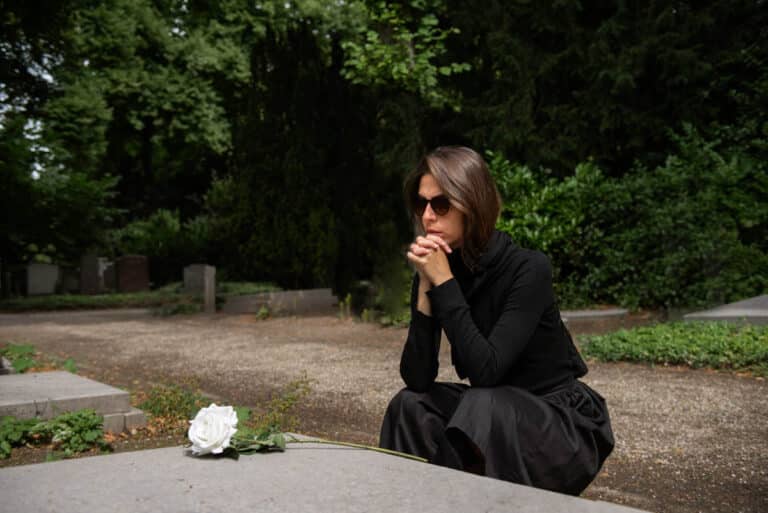Grief is a universal experience that touches us all at some point in our lives. Whether it’s the loss of a loved one (person or pet), a significant relationship, or even a major life change, grief has a profound impact on our emotional, mental, and physical well-being. But what many people don’t realize is that a single incident of grief can have long-term effects that extend far beyond the initial pain.
As a licensed mental health counselor, I often see clients who are surprised by the lingering presence of grief in their lives, sometimes years after the initial loss. One incident of grief, especially when it’s not fully processed, can subtly embed itself into our mental and emotional fabric, potentially leading to a variety of mental health symptoms. In this blog, I’ll explore how one experience of grief can affect you long-term and how you can navigate the complexities of grief to avoid its long-lasting impact.
Unresolved Grief is the foundation for long-term struggles. One of the most common ways grief affects individuals over the long term is when it remains unresolved. Often, people move through the motions of life after a loss, returning to work or family responsibilities, without fully processing their emotions. This can lead to complicated grief, where the mourning process gets “stuck” and continues to disrupt your life. Unresolved grief may look like:
- Constantly revisiting the loss in your mind.
- Difficulty accepting the reality of the loss, even years later.
- Feeling as though life can’t move forward.
- Avoiding reminders of the loss or becoming hyperfocused on them.
- When grief goes unresolved, it can become a backdrop to your daily life, quietly impacting your mental and emotional well-being for years to come.

Depression and anxiety are common companions to grief. Grief and sadness are natural companions, but for some, grief can trigger deeper mental health issues like depression and anxiety. If a person feels overwhelmed by their loss and doesn’t have adequate coping mechanisms or support, grief can evolve into a depressive episode or an anxiety disorder. Long-term depression related to grief might include:
- Persistent Sadness: Unlike the natural waves of grief, depression can create a constant sense of emptiness, numbness, or hopelessness.
- Loss of Interest: You may find yourself withdrawing from activities or relationships you once enjoyed, feeling unable to engage with life.
- Physical Symptoms: Depression often manifests physically, causing fatigue, sleep disturbances, changes in appetite, and body aches.
- Increased used of substances to numb the feelings associated with the grief.

Anxiety may also develop from grief, particularly when the loss creates uncertainty or fear about the future. Anxiety symptoms could include:
- Hypervigilance: You might worry excessively about experiencing another loss, becoming overprotective, or fearful of new relationships or situations.
- Intrusive Thoughts: Recurring, uncontrollable thoughts about the loss or fear of future grief can dominate your mind.
- Panic Symptoms: Physical symptoms like shortness of breath, racing heart, or a sense of dread may appear, especially when triggered by reminders of the loss.
Post-traumatic stress and grief can also become parallel dynamics in the mind after a grief incident. For those who have experienced a sudden or traumatic loss, grief may trigger post-traumatic stress disorder (PTSD). Traumatic grief happens when the loss is unexpected, violent, or particularly painful, making it difficult to process the experience in a healthy way.
Symptoms of traumatic grief may include:
- Flashbacks: Reliving the moment of loss or specific painful memories.
- Avoidance: Avoiding thoughts, feelings, or reminders of the loss can lead to emotional numbing or dissociation.
- Nightmares: Recurring dreams or nightmares related to the event or loss.
- Emotional Numbing: A sense of detachment or disconnection from your emotions or others to protect yourself from further pain.
- When grief is paired with trauma, the healing process becomes more complex, and it may require professional support to fully work through the loss and regain a sense of emotional safety.

Additionally, grief can significantly impact your relationships, even long after the initial loss. For some, grief may lead to withdrawal from loved ones—a desire to isolate, feeling misunderstood, or a fear of burdening others with your emotions. Over time, this can create distance in relationships, weakening the support systems you need most during difficult times.
Conversely, grief can sometimes cause an overdependence on others, placing strain on relationships. You may seek constant reassurance or become overly fearful of losing those you care about, which can lead to tension and misunderstandings.
Grief can also affect romantic relationships, as partners might struggle with how to support one another while dealing with their own emotions. Unresolved grief may create barriers to intimacy, communication, and trust as both individuals navigate their own emotional landscapes.
The emotional toll of grief often manifests physically. Long-term grief can lead to chronic stress, which weakens the immune system and leaves you more susceptible to illness. Additionally, unresolved grief has been linked to an increased risk of heart problems, digestive issues, and chronic pain conditions.
People in prolonged states of grief might experience:
- Sleep disturbances: Difficulty falling or staying asleep or sleeping too much as a way to escape painful emotions.
- Fatigue: Emotional exhaustion can translate into physical fatigue, making it hard to find the energy for daily activities.
- Appetite changes: Some may lose their appetite, while others may turn to food for comfort, leading to weight changes and associated health problems.
- Identity and self-esteem changes: Grief can change your sense of self. For those who’ve lost a close loved one, particularly a spouse, parent, or child, their identity may feel altered. The roles we play in life (partner, caregiver, friend) shape our self-perception, and when that role is lost, we can feel untethered, struggling to find a new sense of purpose or self-worth.
Over time, this identity crisis can lead to low self-esteem, a loss of confidence, and a feeling of being lost or directionless in life. Without proper support, this internal conflict can lead to emotional stagnation and a deep sense of disconnection from who you once were.
Grief is a complex process, and there is no right or wrong way to experience it. However, if you find that grief is affecting you long-term—whether through depression, anxiety, physical health issues, or relationship struggles—there are ways to work through it and regain balance.
Therapy is one of the most effective ways to address long-term grief. Techniques like grief counseling, cognitive-behavioral therapy (CBT), or Brainspotting can help you process the loss in a healthy way. Social Support: Lean on your loved ones and let them know what you’re going through. Sharing your feelings can help release some of the emotional burden. Mindfulness and Relaxation: Practices like meditation or yoga can help you stay present with your emotions without becoming overwhelmed by them.
Please remember that one incident of grief can have a ripple effect on your mental and emotional health, far beyond the initial experience of loss. Please don’t minimize the impact the experience had on you. Please don’t assume you will be ok with time. Grief doesn’t have to define your future, and with the right support and tools, you can move through the pain and find peace on the other side.
If you’re struggling with grief, know that you’re not alone. Reach out to a licensed counselor who can walk with you on this journey and help you navigate the complexities of loss with compassion and care.


Dr. Yaro Garcia
Hello, I am Dr. Garcia, please call me Yaro. My degrees are in clinical psychology and I am a licensed mental health counselor. My approach is caring, warm, safe, non-judgmental, and straight forward. It is a difficult decision to seek therapy, I take time to build a trusting therapeutic relationship with you…
















